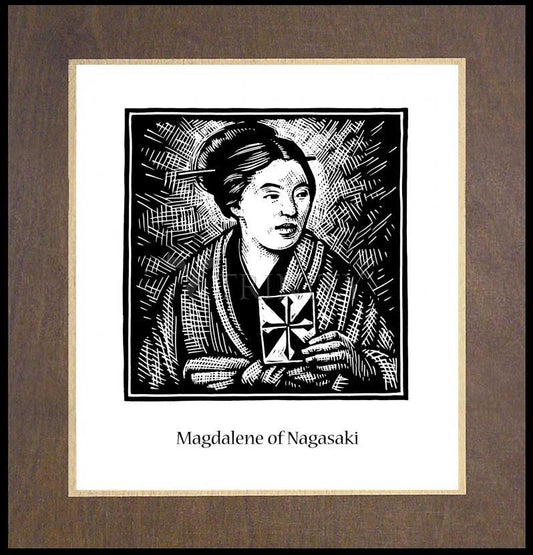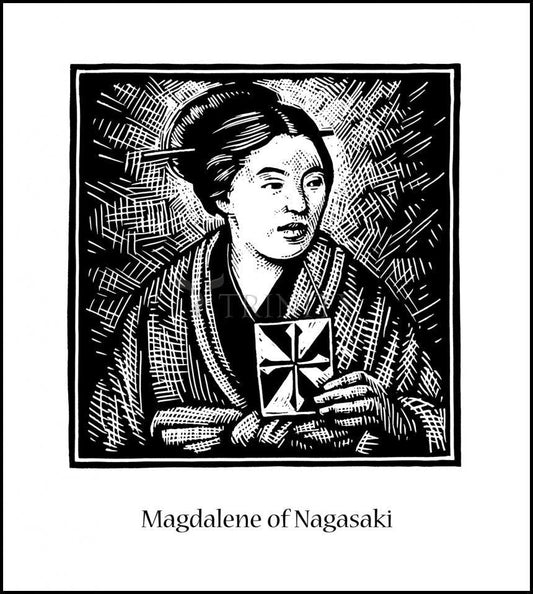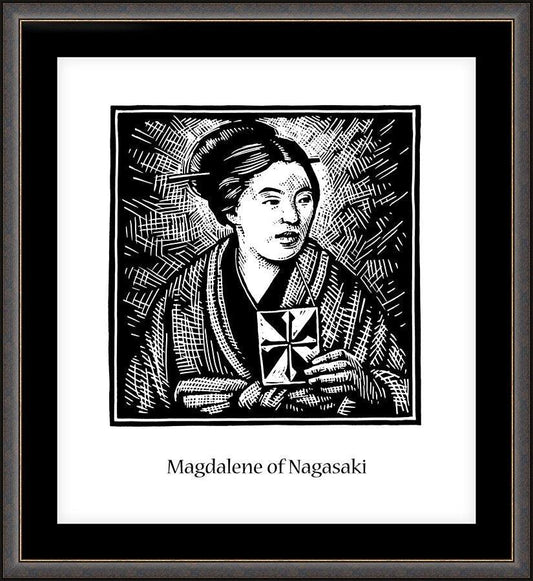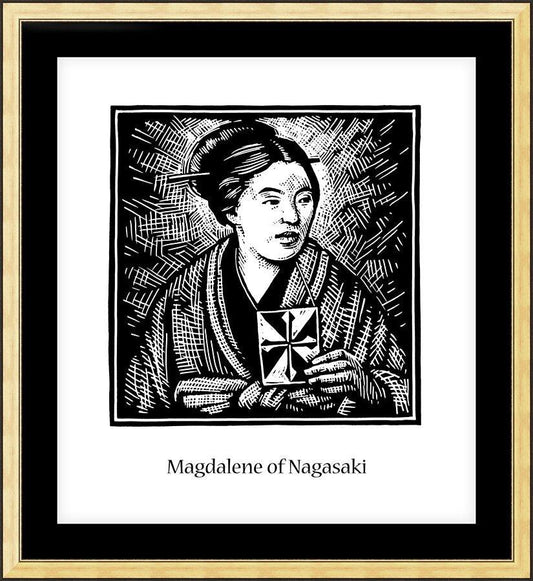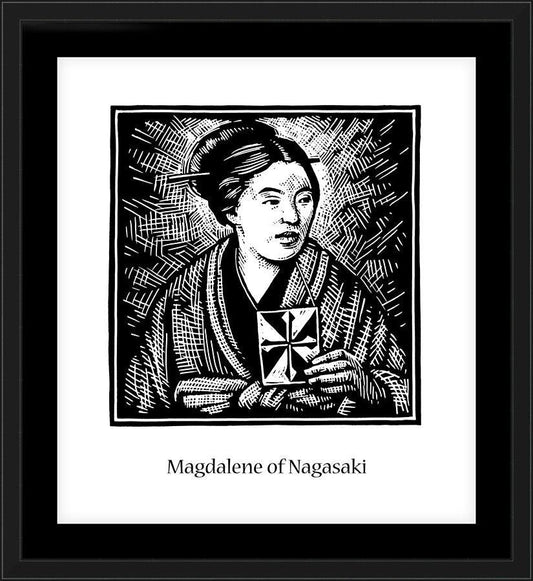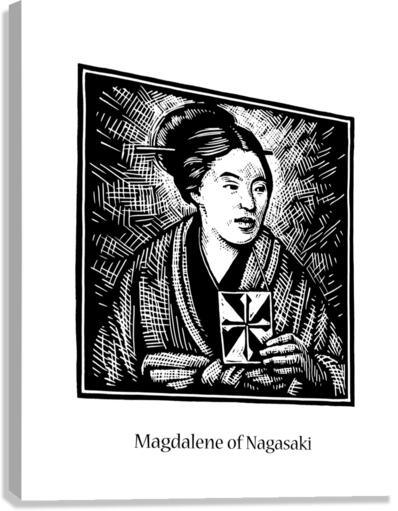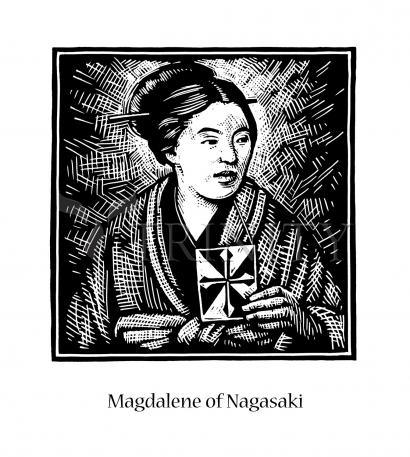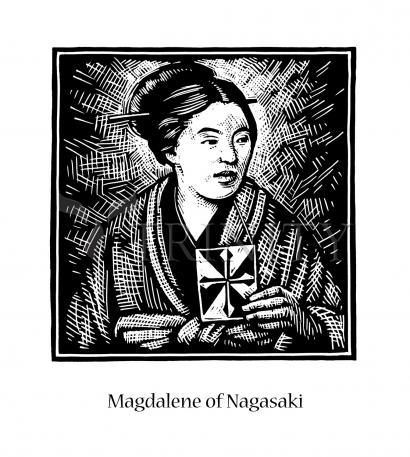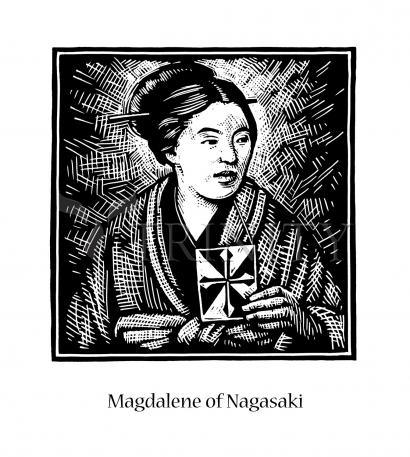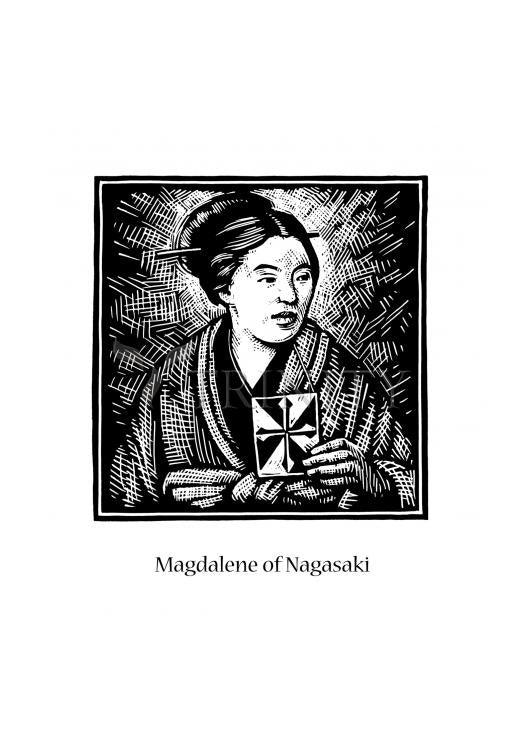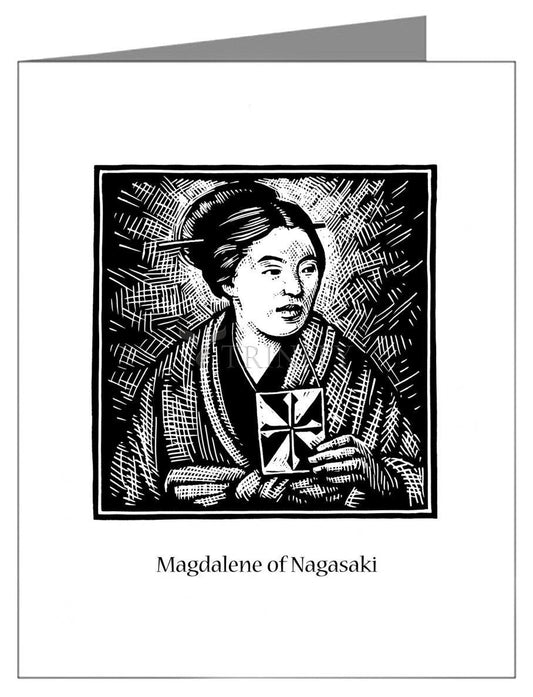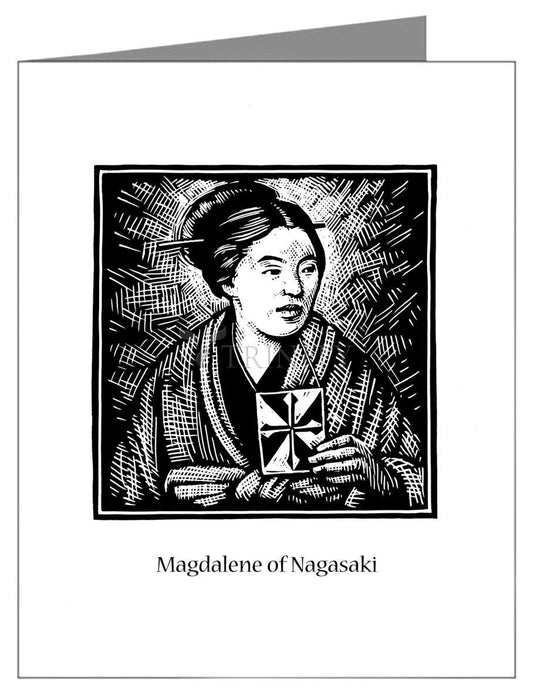St. Magdalene of Nagasaki died 1634. Born in the early seventeenth century, Magdalene belonged to a devout Christian family. Her parents were martyred around 1620, when Magdalene was in her teens.
It was around this time that the first Augustinians arrived in Japan. As a committed Catholic Christian, Magdalene made herself known to them. She served as a catechist and interpreter for the early Augustinian missionaries.
She found their Augustinian spirituality appealing, with its emphasis on the search for God, interior life, and community. She asked to be accepted into the Order of Saint Augustine, and in 1625 was formally received into the Augustinian Third Order.
Being a Christian in Japan became more and more difficult, and with the growth of Christianity persecution became stronger. Magdalene fled to the hills, where she worked at bringing the Word of God to those who did not know Jesus and strengthening the faith of those who did.
In 1632 the Augustinians Francis of Jesus Terrero and Vincent of Saint Anthony Simoens, who had been her first counsellors, were burned to death by the pagan Japanese government because of their Christian faith. This only served to make Magdalene's faith and commitment to Christ even stronger. She located two other Augustinian Friars, Martin of Saint Nicholas Lumbreras and Melchior of Saint Augustine Sánchez. They mutually encouraged each other in persevering in the faith.
Eventually these two Friars were also martyred. Magdalene then took as her spiritual guide Jordan of Saint Stephen, a Dominican. Dominicans also follow a variant of the Rule of St Augustine.
Moved by her strong Christian conviction, and when she could hide no more, Magdalene voluntarily declared herself a follower of Jesus. She was arrested, threatened, ridiculed and tortured, but her Christian witness was strong and unfailing.
After 13 days of torture, wearing her Augustinian habit, Magdalene was suspended upside down in a pit of garbage and eventually died of her tortures. Then her body was burned and her ashes scattered.
Pope John Paul II beatified her in 1981 and canonized her in 1987.



